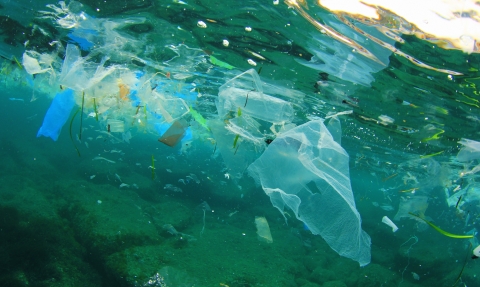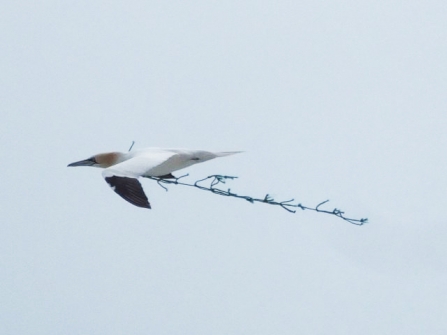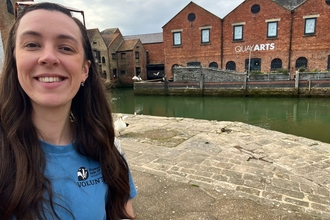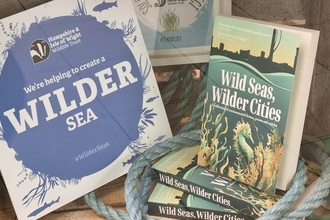
Plastic litter in our oceans © Shutterstock
Plastics
Plastics in our environment are harming wildlife on land, in our rivers, and at sea
Plastics are incredibly useful in many aspects of society, but once they enter our ecosystems they can have a devastating effect on wildlife all over the world.
It can take hundreds of years to decay, breaking down into smaller and smaller pieces. Larger plastics can entangle and ensnare seabirds, marine mammals and reptiles, and often mistaken for food. Once in the food chain, its consumed by predators and can even return to us in the seafood we eat ourselves.

© A Williams
Tackling our plastic addiction; what you can do
The Wildlife Trusts campaigned for the government to introduce a ban on microbeads in toiletries and household products, which wash into our rivers and seas. We were also pleased to see the government introduce a 5p carrier bag levy, which has reduced our usage of bags by 85%, while also raising money for community projects.
However, we can all still do a lot to fight the plastic tide.
Do a beach clean
Join a local beach clean event, organise one yourself, or even do a two minute clean while out for a walk - you'll be amazed at what you'll find. Find out more about how beach cleans help.
Reduce, reuse, recycle
Try and reduce the amount of plastic you use by swapping to reusable coffee cups, water bottles and bags. Make sure that used plastics are recycled wherever possible.
Campaign
Talk to your local businesses and the companies you buy from about your concerns about plastic, and tell your MP you want action.
Read more about our work to
© Chris Lycett
Microplastics affecting our nature reserves
Our volunteers work hard to help clean up our nature reserves like here at Farlington Marshes nature reserve, but the sheer amount of small plastic pieces beads amongst the debris on the shoreline make it a near impossible job. More needs to be done to prevent plastic entering our ecosystems in the first place.
More on our work on marine issues

"Do jellyfish need summer hats?" Tales from a seagrass workshop
‘Shall I make my jellyfish a hat now that it’s getting closer to summer?’ is not a question I had anticipated when preparing for the…

Pens of the Earth reach over £4,000 in funds raised for seagrass restoration
Thanks to the incredible support from the community of writers, poets, artists and book lovers, 'Wild Seas, Wilder Cities' has…
Intertidal Survey - Calshot
Enjoy our glorious coast and help to protect local marine wildlife with our intertidal surveys.
